- Home
- Philip Pullman
The Ruby in the Smoke Page 2
The Ruby in the Smoke Read online
Page 2
This came to her once or twice a year. She would feel herself suffocating in intolerable heat - the darkness was intense - and somewhere nearby, a man's voice was screaming in terrible agony. Then out of the darkness a flickering light would appear, like a candle held by someone hurrying towards her, and another voice would cry - "Look! Look at him! Dear God - look -" But she did not want to look. It was the last thing in the world she wanted to do, and that was the point at which she woke up, drenched in perspiration, suffocating, and sobbing with fear. Her father would come running, and calm her down, and presently she would sleep again; but it took a day or so for her to feel free of it.
Then came her father's voyage, and the weeks of separation, and finally the telegram telling of his death. At once her father's lawyer, Mr Temple, had taken charge. The house in Norwood was shut up, the servants paid off, the pony sold. It seemed that there was some irregularity in her father's will, or in the Trust he had set up, and that Sally was consequently going to be much poorer than anyone had thought. She was placed in the care of her father's second cousin Mrs Rees, and there she had lived until this morning, when the letter came.
She thought until she had opened it that it must be from the Dutch agent, Mr van Eeden. But the paper was torn, and the writing clumsy and childlike; surely no European businessman would write like that? Besides, it was unsigned. She had gone to her father's office in the hope that someone there would know what it meant.
And she had found that someone did.
She went back to Peveril Square (she did not think of it as home) on the threepenny omnibus, and prepared to face Mrs Rees.
She had not been given a key to the house. This was one of Mrs Rees's ways of making her feel unwelcome: she had to ring the bell every time she wanted to come in, and the maid who admitted her did so, always, with the air of having been interrupted in some more important task.
"Mrs Rees is in the drawing-room, miss," she said primly. "She says you're to go and see her the minute you get in."
Sally found the lady seated by a thin fire, reading a volume of her late husband's sermons. She did not look up when Sally entered, and Sally looked down at her faded gingery hair and loose, dead-white skin, loathing her. Mrs Rees was not yet out of her forties, but had found early in life that the role of an aged tyrant suited her well, and played it for all it was worth. She acted as if she were a frail seventy; she had never in her life lifted a finger for herself or had a single kind thought for others, and she welcomed Sally's presence only for the chance it gave her to bully. Sally stood by the fire, and waited, and finally spoke.
"I'm sorry I'm late, Mrs Rees, but I--"
"Oh, Aunt Caroline, Aunt Caroline," said the lady irritably. "I have been told by my lawyer that I am your aunt. I did not expect it; I did not seek it; but I shall not shrink from it." Her voice whined and creaked, thought Sally; and she would speak so slowly...
"The maid said you wished to see me, Aunt Caroline."
"I have been applying myself with little success to the subject of your future. Do you intend to remain under my care for ever, I wonder? Or would five years be sufficient, or ten? I am merely trying to establish the scale of things. It is plain that you have no prospects, Veronica. I wonder if that had crossed your mind? What accomplishments have you?"
Sally hated the name Veronica, but Mrs Rees had said that Sally was a servant's name, and refused to use it. She stood mute now, unable to think of a polite answer, and found her hands beginning to shake.
"Miss Lockhart is endeavouring to communicate with me by means of thought alone, Ellen," said Mrs Rees to the maid, who was standing piously inside the door, hands folded and eyes wide with innocence. "I am supposed to understand her without the intervention of language. My education, alas, did not prepare me for such a task; in my day, we used words very frequently amongst ourselves. We spoke when we were spoken to, for instance."
"I am afraid I have no - accomplishments, Aunt Caroline," said Sally in a low voice.
"None but modesty, you mean to imply? Or is modesty simply the first of a long list? Surely so excellent a gentleman as your late father would not have left you quite unprepared for life?"
Sally shook her head helplessly. The death of Mr Higgs, and now this...
"I thought so," said Mrs Rees, glinting with a pale triumph. "So even the modest goal of governess is barred to you. We shall have to bend our thoughts to something yet more modest. Possibly one of my friends -Miss Tullett, perhaps, or Mrs Ringwood - could in charity find room for a lady's companion. I shall make inquiries among them. Ellen, you may bring the tea."
The maid bobbed and left. Sally sat down heavyhearted, with the prospect of another evening of sarcasm and malice ahead of her, and the knowledge of mystery and danger outside.
Chapter Two
THE WEB
Several days went by. There was an inquest, which Sally had to attend; Mrs Rees had arranged (by the merest chance) a visit to her great friend Miss Tullett that morning, and found the inconvenience most vexing. Sally answered the Coroner's questions quite truthfully: she had been speaking to Mr Higgs about her father, she said, when suddenly he had died. No one pressed her closely. She was learning that if she pretended to be weak and frightened, and dabbed at her eyes with a lacy handkerchief, she could turn aside all manner of pressing questions. She disliked this intensely, but she had no other weapons - apart from the pistol. And that was no use against an enemy she could not see.
At all events, no one appeared surprised by the death of Mr Higgs. A verdict of death by natural causes was returned; the medical evidence had disclosed a weakness of the heart, and the case was dealt with in less than half an hour. Sally went back to Islington; life went back to normal.
But there was a difference. Without knowing it, she had shaken the edge of a web, and the spider at the heart of it had woken. Now, while she remained unaware (while she sat, in fact, in the uncomfortable drawing-room of Miss Tullett, and listened to that lady and Mrs Rees discussing in cat-like terms her own shortcomings) three events took place, each of which was to shake the web a little more, and turn the cold eyes of the spider towards London, and towards Sally.
Firstly, a gentleman in a cold house read a newspaper.
Secondly, an old - what shall we call her? Till we know her better, let us give her the benefit of the doubt, and call her lady - an old lady entertained a lawyer to tea.
Thirdly, a sailor in unhappy circumstances came ashore at the East India Docks, and looked for a lodging-house.
The gentleman in question (his servants, in the days when he had a full staff, had called him the Major) lived on the coast, overlooking a grim tract of land that was flooded at high tide, marshy at low, and desolate always. The house was empty of all but the bare necessities of life, for the Major's wealth had suffered a wasting disease. It was now on the point of expiring. On this afternoon the Major sat in the bay window of his chilly drawing room. The room faced north, out to the drab wilderness of water; grey and cold as it was, something drew him constantly to this side of the house, to watch the waves and the ships that passed further out. But he was not looking out to sea just now; he was reading a newspaper lent him by the only servant who remained - a cook-housekeeper so afflicted by drink and dishonesty that no one else would employ her at all.
Listlessly he turned the pages, holding the paper up to the fading daylight so as to defer till the last possible moment the expense of lighting the lamps. His eyes scanned the columns of type with no sign of interest or hope - until he caught sight of a story on an inside page which made him sit up suddenly.
The paragraph which interested him most read:
The only witness to this sad event was Miss Veronica Lockhart, daughter of the late Mr Matthew Lockhart, a former partner in the firm. Mr Lockhart's own death, in the wreck of the schooner Lavinia, was reported in these pages last August.
He read it twice, and rubbed his eyes. Then he got up, and went to write a letter.
&n
bsp; Beyond the Tower of London, between St Katharine's Docks and Shadwell New Basin, lies the area known as Wapping: a district of docks and warehouses, of crumbling tenements and rat-haunted alleys, of narrow streets where the only doors are at first-floor level, surmounted by crude projecting beams and ropes and pulleys. The blind brick walls at pavement level and the brutal-looking apparatus above give the place the air of some hideous dungeon from a nightmare, while the light, filtered and dulled by the grime in the air, seems to come from a long way off - as if through a high window set with bars.
Of all the grim corners of Wapping, none was grimmer than Hangman's Wharf. Its wharfing days were long gone, though the name remained; now it consisted of a row of warren-like houses and shops, their rear rooms actually hanging over the river - a ship's chandler, a pawnbroker's, a pie shop, a pub called the Marquis of Granby - and a lodging-house.
Lodgings, in the East End, is a word that covers a multitude of horrors. At its worst, it means a room streaming with damp and poisonous with stench, with a rope stretched across the middle. Those far gone in drink or poverty can pay a penny for the privilege of slumping against this rope, to keep themselves off the floor while they sleep. At its best, it means a decent, cleanly place where they change the linen as often as they remember. Somewhere in between there is Holland's Lodgings. There, a bed for the night would cost you threepence, a bed to yourself fourpence, a room to yourself sixpence and breakfast a penny. You were never alone at Holland's Lodgings. If the fleas disdained your flesh, the bedbugs had no snobbery; they'd take a bite out of anyone.
To this house came Mr Jeremiah Blyth, a stout and shady lawyer of Hoxton. His previous business with the owner had been transacted elsewhere; this was his first visit to Hangman's Wharf.
His knock brought a child to the door - a child whose only feature seemed to be, on that dingy afternoon, a pair of enormous dark eyes. She opened the door a fraction, and whispered, "Yessir?"
"Mr Jeremiah Blyth," said the visitor. "Mrs Holland is expecting me."
The child opened the door wide enough for him to enter, and then seemed to vanish into the gloom of the hallway.
Mr Blyth went in, and drummed his fingers on his top hat, and stared at a dusty engraving of the Death of Nelson, and tried not to guess at the origin of the stains on the ceiling.
Presently there shuffled in, preceded by a smell of boiled cabbage and old cat, the owner of the house. She was a wizened old woman with sunken cheeks, pinched lips and glittering eyes. She held out a claw-like hand to her visitor, and spoke - but she might have been speaking in Turkish for all the sense Mr Blyth could make of it.
"I beg your pardon, ma'am? I didn't quite catch -"
She crowed, and led the way into a tiny parlour, where the smell of old cat had been left to gain depth and maturity. Once the door was shut she opened a little tin box on the mantelpiece and took out a set of false teeth, fitting them into her wrinkled mouth and smacking her lips over them. They were too big for her, and looked entirely horrible.
"That's better," she said. "I always forgets me teeth indoors. Me pore dear husband's, these were. Real ivory. Made for him out East twenty-five year ago. Look at the workmanship!"
She bared the brown fangs and grey gums in an animal snarl. Mr Blyth took a step backwards.
"And when he died, pore lamb," she went on, "they was going into the grave with him, being as he was took so quick. Cholera, it was. Gone in a weekend, pore duck. But I whipped 'em out his mouth afore they shut the lid on him. There's years o' wear in them teeth, I thought."
Mr Blyth gulped.
"There, sit down," she said. "Make yerself at home. Adelaide!"
The child materialized. She could not, thought Mr Blyth, be older than nine, and so should, by law, have been at school - for the new Board Schools had been set up only two years before, making education compulsory for children under thirteen. However, Mr Blyth's conscience was as wraith-like as the child herself - far too insubstantial to inquire, let alone protest. So his conscience and the child both remained silent while Mrs Holland gave directions for tea; and then they both vanished again.
Turning back to her visitor, Mrs Holland leant forward, tapped him on the knee, and said, "Well? You got the doings, have yer? Don't be coy, Mr Blyth. Open yer case, and let an old lady in on the secret."
"Quite, quite," said the lawyer. "Though strictly speaking there is, of course, no secrecy as such, our arrangement being made in perfectly legal terms..."
Mr Blyth's voice had a habit of fading away rather than coming to a stop at the end of a speech; it seemed to suggest that he was open to an alternative proposal that might be made at the last moment. Mrs Holland was nodding vigorously.
"That's right," she said. "All square and above-board. No hanky-panky - I won't have that. Go on, then, Mr Blyth."
Mr Blyth opened his leather case and took out some papers.
"I went down to Swaleness onWednesday last," he said, "and secured the agreement of the gentleman to the terms we discussed at our last meeting..."
He paused there to let Adelaide enter the room with a tea-tray. She put it down on a dusty little table, curtseyed to Mrs Holland, and left without a word. While Mrs Holland poured the tea, Mr Blyth resumed.
"The - er - terms ... to be sure. The article in question is to be deposited with Hammond and Whitgrove, Bankers, of Winchester Street -"
"The article in question? Don't be coy, Mr Blyth. Out with it."
He looked exquisitely pained at having to name something clearly. He lowered his voice, leant forward in his chair, and looked around before he spoke.
"The - ah - Ruby will be deposited at Hammond and Whitgrove's Bank, to remain there until the death of the gentleman; whereupon, by the terms of his will, duly witnessed by myself and - ah - a Mrs Thorpe -"
"Who's she? A neighbour?"
"A servant, ma'am. Not entirely reliable; drinks, I understand; but her signature is, of course, valid. Ahem - the Ruby will remain, as I say, with Hammond and Whitgrove, until the death of the gentleman; whereupon it will become your property..."
"And that's legal, is it?"
"Perfectly so, Mrs Holland..."
"No nasty little snags? No last-minute surprises?"
"Nothing of the sort, ma'am. I have here a copy of the document, signed by the gentleman himself. It provides, as you see, for every - ah - eventuality..."
She took the paper from him and scanned it eagerly.
"Seems all right to me," she said. "Very well, Mr Blyth. I'm a fair woman. You've done a job of work - I'll pay yer fee. What's the damage?"
"Damage, ma'am? Oh - ah - of course. My clerk is preparing an account at the moment, Mrs Holland. I shall see that it is sent in due course..."
He remained another fifteen minutes or so before leaving. After Adelaide had shown him to the door, making no more noise than a shadow, Mrs Holland sat for a while in the parlour, reading once again the document that the lawyer had brought her. Then she put away her teeth, after first rinsing them in the teapot, and put on her cloak, and set out to look at the premises of Hammond and Whitgrove, Bankers, of Winchester Street.
The third of our new acquaintances was called Matthew Bedwell. He had been second mate on a tramp ship in the Far East, but that was a year or more ago. At the moment, he was in a sorry state.
He was wandering through the maze of dark streets behind the West India Docks, a kitbag slung over his shoulder, a thin jacket done up tight against the cold - which he felt keenly, without having the energy to look out something warmer to put on.
He had a slip of paper in his pocket with an address on it. From time to time he took this out and checked the name of the street he was in, before putting it back and moving on a little way. Anyone watching him would have thought he was drunk; but there was no smell of alcohol around him, and his speech was not slurred, and his movements were not clumsy. A more compassionate observer would have thought him ill or in pain, and that would have been nearer the mark.
But if anyone had seen into his mind, and sensed the chaos that reigned in that dark place, they would have thought it remarkable that he managed to keep going at all. There were two ideas fixed in his consciousness: one which had brought him twelve thousand miles to London, and one which had fought against the first every inch of the way.
Then the second idea very nearly vanquished the first.
Bedwell was passing through an alley in Limehouse - a narrow, cobbled place, the bricks black with soot and crumbling with damp - when he caught sight of an open door, with an old man squatting motionless on the step. The old man was Chinese. He was watching Bedwell, and as the sailor came past, he jerked his head slightly and said, "Wantee smoke?"
Bedwell felt every cell in his body strain towards the doorway. He swayed and closed his eyes; and then said, "No. No wantee."
"Good number one smoke," said the Chinaman.
"No. No," repeated Bedwell, and forced himself onward and out of the alley. Once again he consulted his piece of paper; once again he moved forward a hundred yards or so before doing it again. Slowly but surely he made his way west, through Limehouse and Shadwell, until he found himself in Wapping. Another check, and then a pause. The light was fading; he had little strength left. There was a public house nearby, its yellow gleam cheering the drab pavement and drawing him in like a moth.

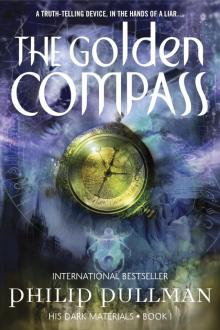 The Golden Compass
The Golden Compass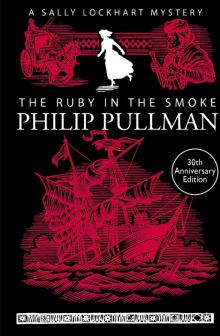 The Ruby in the Smoke
The Ruby in the Smoke I Was a Rat!
I Was a Rat! Once Upon a Time in the North
Once Upon a Time in the North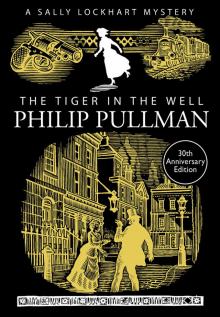 The Tiger in the Well
The Tiger in the Well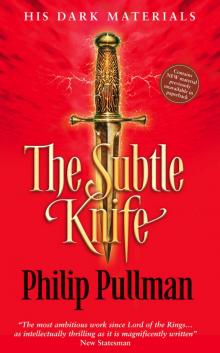 The Subtle Knife
The Subtle Knife The Butterfly Tattoo
The Butterfly Tattoo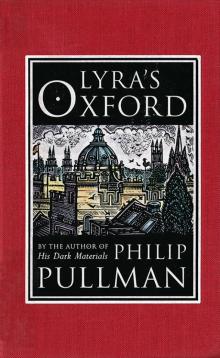 Lyra's Oxford
Lyra's Oxford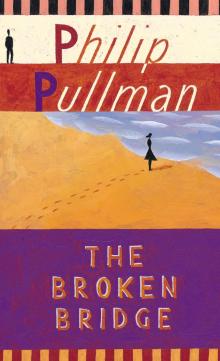 The Broken Bridge
The Broken Bridge The Amber Spyglass
The Amber Spyglass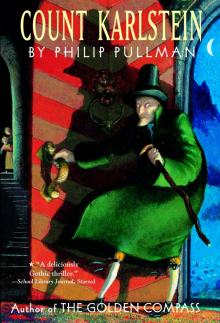 Count Karlstein
Count Karlstein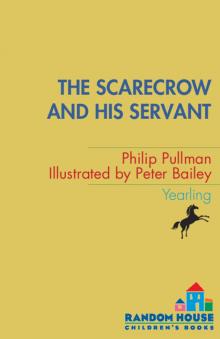 The Scarecrow and His Servant
The Scarecrow and His Servant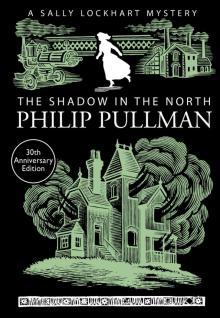 The Shadow in the North
The Shadow in the North The Collectors
The Collectors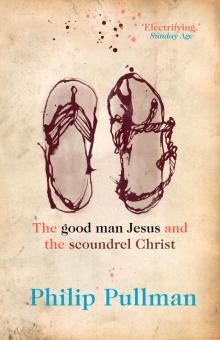 The Good Man Jesus and the Scoundrel Christ
The Good Man Jesus and the Scoundrel Christ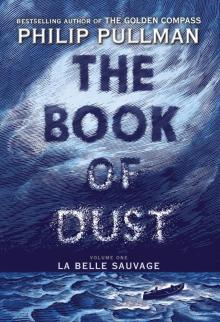 La Belle Sauvage
La Belle Sauvage The Tin Princess
The Tin Princess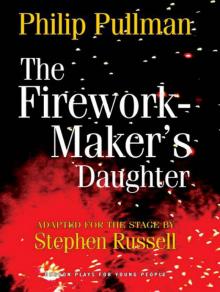 The Firework-Maker's Daughter
The Firework-Maker's Daughter The Book of Dust: The Secret Commonwealth (Book of Dust, Volume 2)
The Book of Dust: The Secret Commonwealth (Book of Dust, Volume 2) Serpentine
Serpentine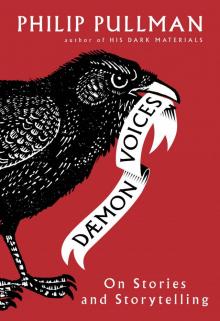 Daemon Voices
Daemon Voices The Amber Spyglass: His Dark Materials
The Amber Spyglass: His Dark Materials The Amber Spyglass hdm-3
The Amber Spyglass hdm-3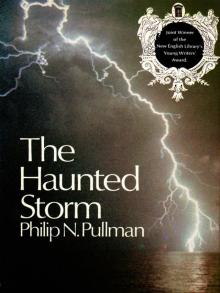 The Haunted Storm
The Haunted Storm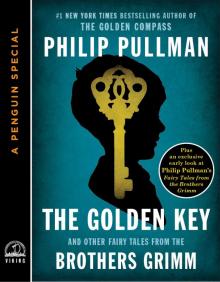 The Golden Key
The Golden Key His Dark Materials 01 - The Golden Compass
His Dark Materials 01 - The Golden Compass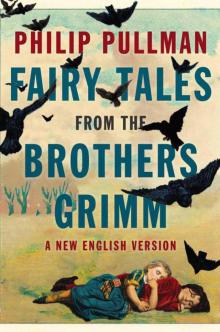 Fairy Tales from the Brothers Grimm: A New English Version
Fairy Tales from the Brothers Grimm: A New English Version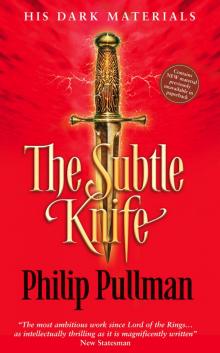 His Dark Materials 02 - The Subtle Knife
His Dark Materials 02 - The Subtle Knife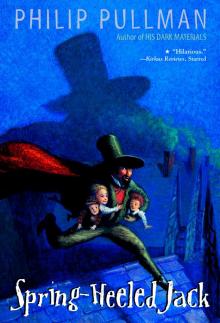 Spring-Heeled Jack
Spring-Heeled Jack The Golden Compass hdm-1
The Golden Compass hdm-1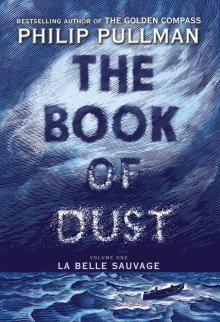 The Book of Dust, Volume 1
The Book of Dust, Volume 1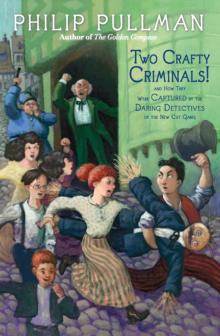 Two Crafty Criminals!
Two Crafty Criminals!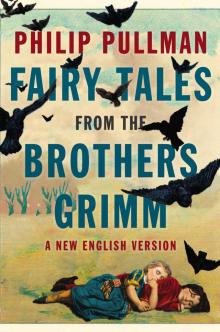 Fairy Tales from the Brothers Grimm
Fairy Tales from the Brothers Grimm The Subtle Knife: His Dark Materials
The Subtle Knife: His Dark Materials His Dark Materials Omnibus
His Dark Materials Omnibus The Golden Compass: His Dark Materials
The Golden Compass: His Dark Materials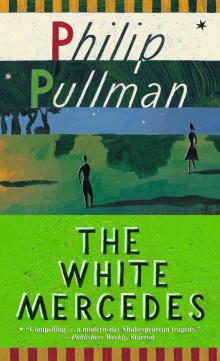 The White Mercedes
The White Mercedes